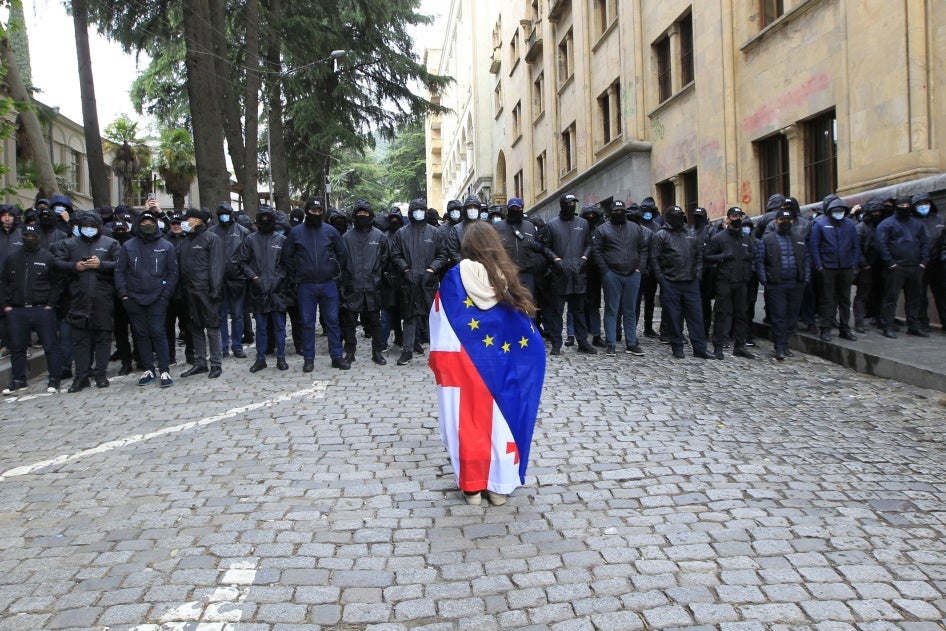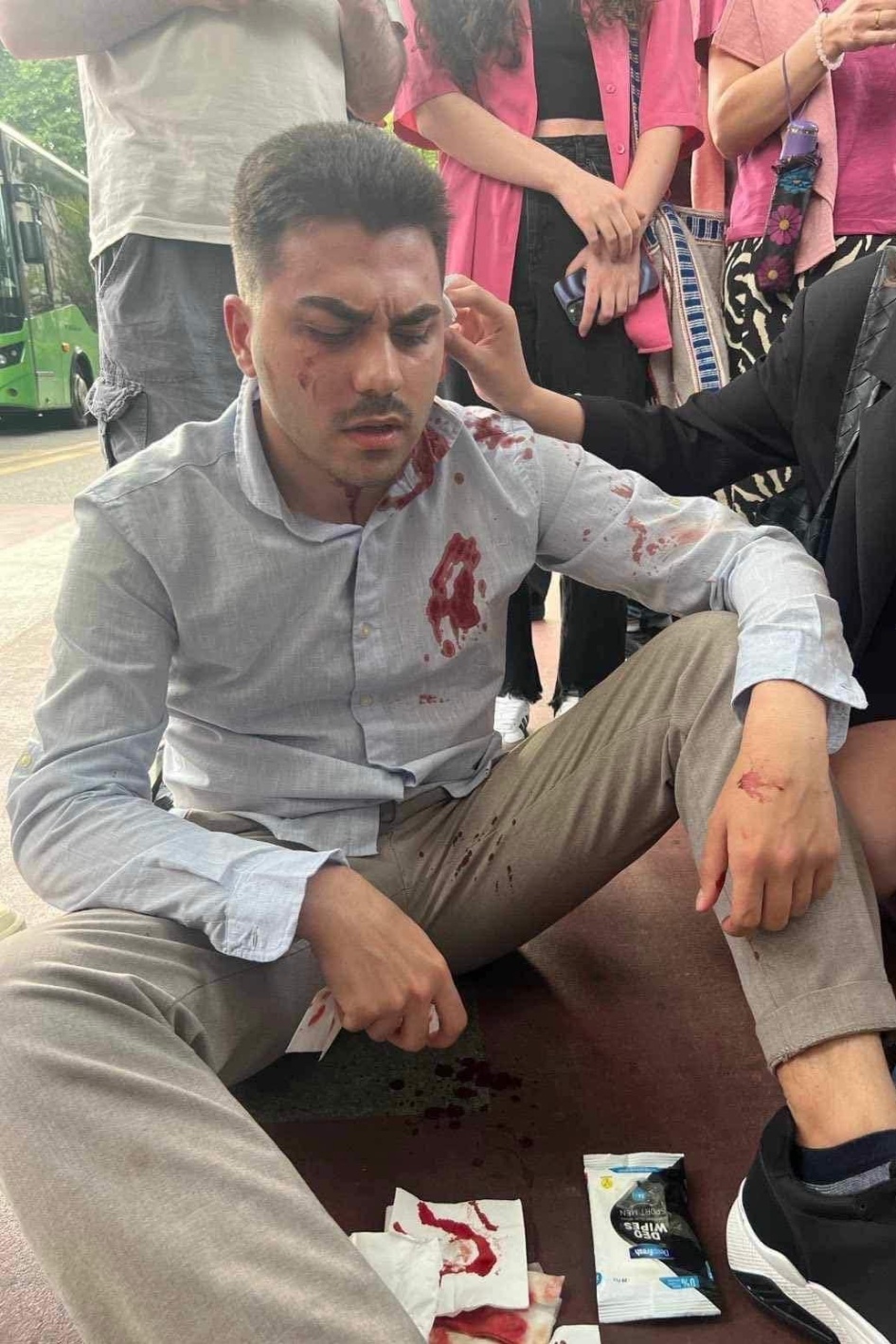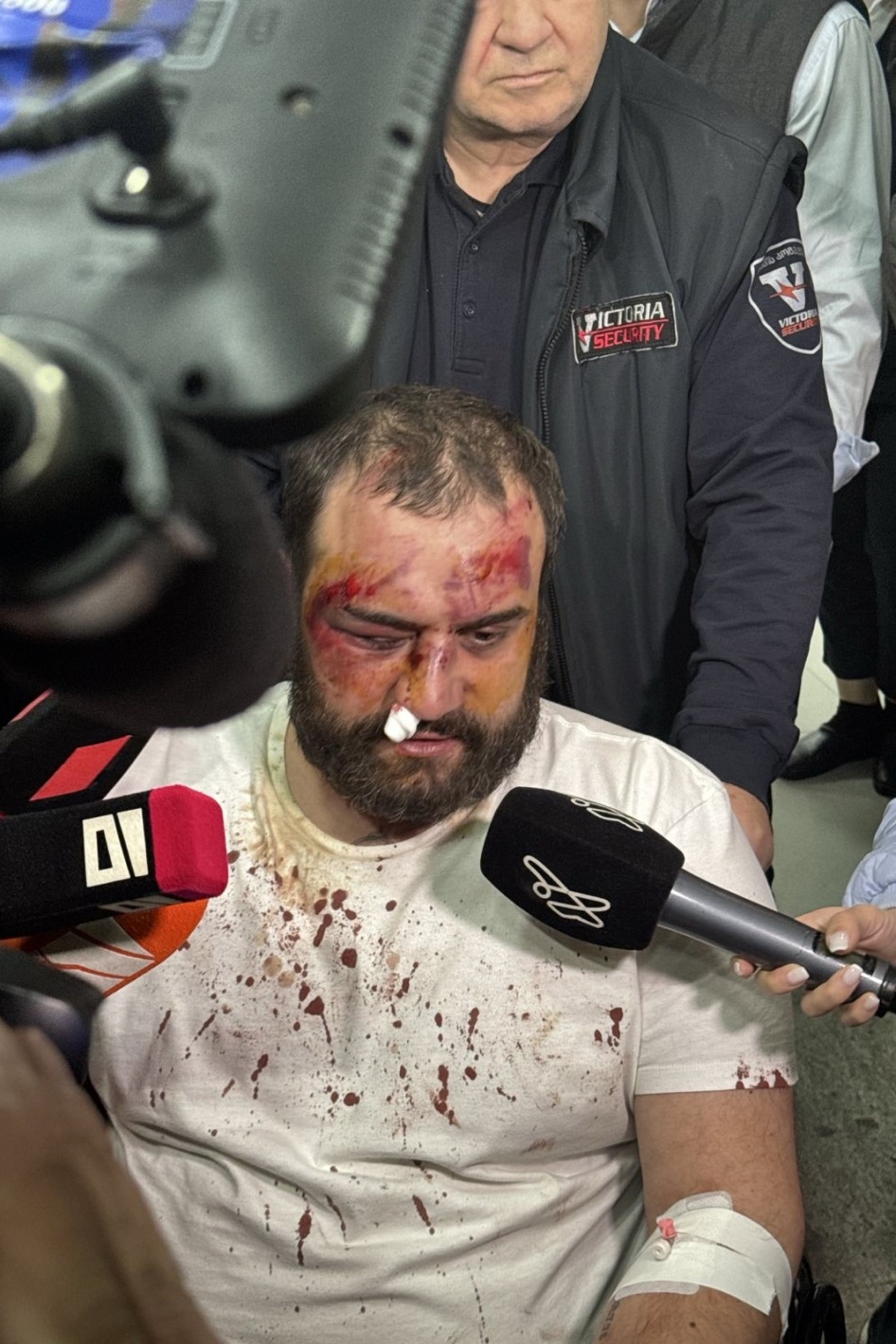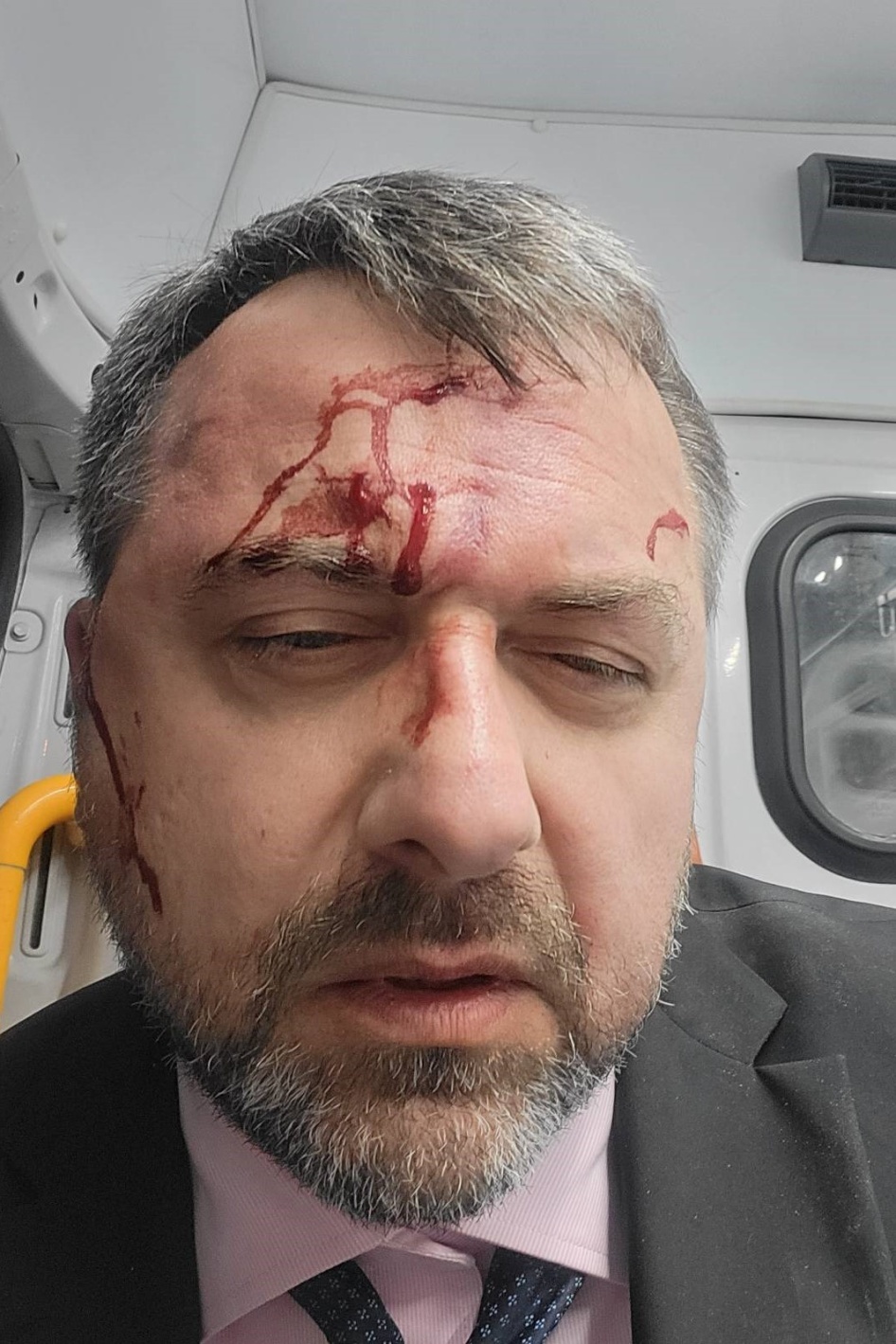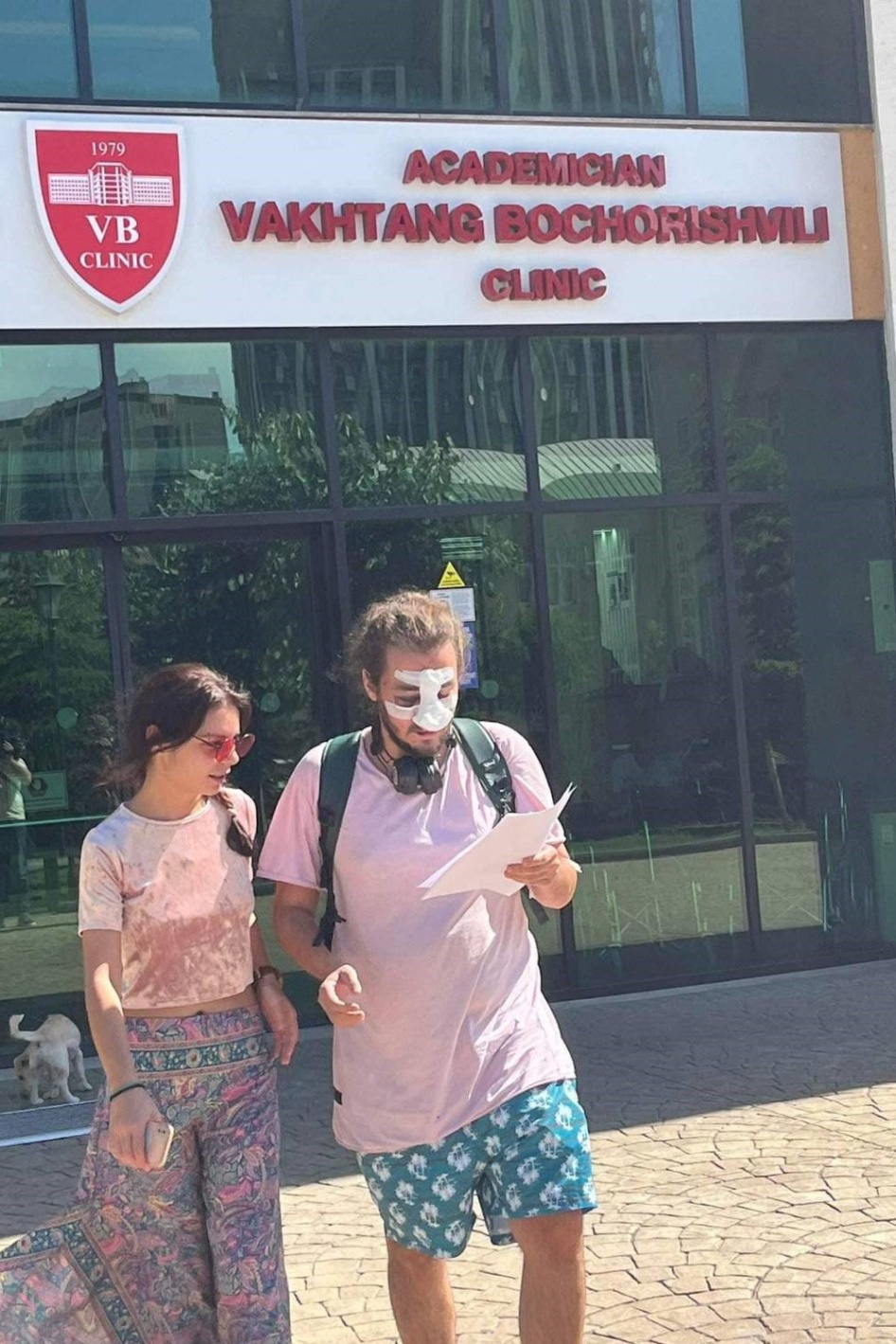(Berlin) – Georgian authorities have yet to demonstrate that they are conducting effective investigations into a spate of violent attacks on civic and political activists over recent months, Human Rights Watch said today. Impunity for these attacks risks encouraging further political violence and instability in the run-up to the country’s parliamentary elections in October 2024.
From late April through June, unidentified assailants violently attacked over a dozen activists, leading in many cases to head and other injuries requiring hospitalization. Most attacks were committed by small groups of assailants in public places with witnesses and CCTV cameras nearby. While the police have formally opened investigations in most cases, they have not identified or arrested any suspects, and there are concerning signs that they are not taking the necessary investigative steps to hold those responsible to account.
Many of the survivors had spoken out against the “foreign agent” law, which the ruling Georgian Dream party introduced in parliament in April 2024 and adopted six weeks later. President Salome Zurabishvili vetoed the law, but the ruling party overrode the veto on May 28.
“A pattern of harassment and intimidation of activists, independent media, and government critics, if left unpunished, risks emboldening malicious actors to escalate violence in the months before Georgia’s upcoming elections,” said Hugh Williamson, Europe and Central Asia director at Human Rights Watch. “Accountability for these brutal attacks and threats of violence is urgently needed.”
Human Rights Watch has documented six of these attacks in the capital, Tbilisi, against five people: a university student, a professor, the founder of a youth protest group, a protest participant, and a leading member of Georgia’s largest opposition party. Human Rights Watch interviewed the survivors and their lawyers and reviewed legal filings, medical reports documenting their injuries, and several CCTV videos and other video footage of the attacks that are in the public domain. Human Rights Watch also wrote to the interior minister and the prosecutor general, requesting information about the investigations. The prosecutor’s office replied on August 19 stating that the Interior Ministry is investigating the attacks and that no criminal prosecutions have been initiated thus far.
Georgian human rights groups and media have documented and reported on over a dozen other cases of physical attacks against activists since mid-April. Investigations into those attacks appear to have been slow and largely ineffective.
In the cases Human Rights Watch documented, survivors’ lawyers regularly reached out to investigators, but did not receive any indication that the authorities had identified a suspect in any of the cases. No survivors were asked to come to the station to identify suspects in a line-up or to participate in a face-to-face confrontation with a suspect.
The introduction of the law On Transparency of Foreign Influence led to some of the largest peaceful protests in Georgia in recent decades. There were multiple, credible reports of unjustified police use of violence to disperse them.
The law seeks to marginalize and discredit nongovernmental groups and broadcast media that are critical of the government, requiring those that receive 20 percent or more of their income from foreign sources to register as “organizations serving the interest of a foreign power.”
Georgian Dream party leaders made clear in public statements that they intend the law to be used against groups and media that criticize the government, advocate for lesbian, gay, bisexual, and transgender (LGBT) rights, or engage in other work that irritates the authorities.
Before the law’s final adoption, civic and political activists, including survivors of physical attacks, were targets of an apparently coordinated campaign of harassment and intimidation. They and their family members received repeated threatening and insulting phone calls from unidentified individuals. Smear campaigns of posters featured the images of leaders of nongovernmental groups and critical journalists, calling them traitors and enemies of the state and the church.
Leaders of Georgian Dream, which has led the country since 2012, also implied they would use the foreign influence law against critics in the lead-up to October’s parliamentary vote. The election will be the first in which all seats will be decided by proportional representation, a system in which all seats are allocated based on the percentage of votes each party receives, rather than a mix of individual and party-based mandates.
In an urgent analysis published in May 2024, the Venice Commission, the Council of Europe’s advisory body on constitutional matters, concluded that the restrictions imposed by the law on the rights to freedom of expression, freedom of association, and privacy fail to meet the “requirements of legality, legitimacy, and necessity in a democratic society,” and violate the principles of proportionality and nondiscrimination.
The commission urged the Georgian authorities to repeal the law, “as its fundamental flaws will involve significant negative consequences for the freedoms of association and expression, the right to privacy, the right to participate in public affairs as well as the prohibition of discrimination.”
Georgian authorities should swiftly, thoroughly, and effectively investigate the violent attacks, hold those responsible to account, and publicly and unequivocally denounce politically motivated violence, Human Rights Watch said.
“Impunity for attacks against government critics sends an unmistakable signal that the authorities condone politically motivated violence when it serves their interests,” Williamson said. “The authorities can avoid sending this signal by conducting prompt, thorough, and effective investigations, capable of identifying individual assailants.”
For details about the attacks and the “foreign agents” law, please see below.
Attacks on Activists
Nikoloz Managadze
Nikoloz Managadze, a 21-year-old Tbilisi State University student who founded a student protest group, For Freedom, was attacked in April and again in June.
Around noon on April 20, Managadze tried to approach Prime Minister Irakli Kobakhidze, who teaches at Tbilisi State University, and who was leaving his class accompanied by his security detail, to ask him to meet with student protesters.
“The security guards pushed me away from the [prime minister] and toward a group of thugs, where about 10 to 15 people started to kick me,” Managadze told Human Rights Watch. “I fell on the ground, and they kept kicking me. I lost consciousness for a bit. I could not open my left eye, it was red and swollen.” Journalists and others witnessed the violence, Managadze said.
Managadze said he felt lightheaded and went to a hospital, where medical personnel diagnosed him with a mild concussion, recommended several days of bed rest, and discharged him.
A few days later, Managadze and his lawyer filed a complaint with the prosecutor's office and the Interior Ministry. The authorities did not recognize Managadze as a victim or otherwise respond to this complaint, he said.
For weeks following the incident, unidentified people repeatedly made phone calls to Managadze and his family members, including his 14-year-old sister, threatening violence against him and warning him to stop his activism or suffer the consequences. Dozens of calls came at all hours, including at 2 and 3 a.m., from local and international numbers. Managadze and his lawyer filed a complaint with the Interior Ministry on June 6 requesting an investigation into this campaign of intimidation, but they have not received a response.
On June 7, around 7 p.m. as classes ended, several men attacked Managadze as he waited in front of the university for a traffic light to turn green. He said he felt a sudden blow to his head from behind, and then several assailants began beating him. Managadze fell to the ground and started to bleed as passers-by tried to intervene and help, causing the assailants to flee.
“I tried to get up, but could not balance myself, I was bleeding from my left ear, which was cut and required stitches,” he said. “I felt pain all over my body, back, head, my left shoulder was dislocated, and as it turned out, I had a concussion.” An ambulance transferred him to a hospital, where he spent the night and was diagnosed with a concussion and received several stitches to his left ear.
A video posted to Facebook on June 7, and verified by Human Rights Watch, shows two men running away from Managadze as he falls to the ground at a traffic light just outside the university. Managadze identified these two men as part of the group who attacked him. The police opened an investigation, interviewed Managadze, and recognized him as the victim of a crime. However, they have yet to identify or arrest a suspect.
Dimitri Chikovani
At about 11 p.m. on May 8, a group of about five men wearing hooded sweatshirts, with the hoods over their heads, severely beat Dimitri Chikovani, 37, a leading member of the opposition United National Movement party, near the entrance to his apartment building in Tbilisi. Chikovani sustained multiple head traumas, a broken nose, and numerous lacerations and bruising all over his face. The prosecutor’s office described these injuries in a document it issued designating Chikovani as a crime victim.
A neighbor found Chikovani lying near the entrance and called an ambulance. Chikovani underwent surgery to his nose and was hospitalized for several days. A local television station aired footage from CCTV cameras at the site that captured the beating.
Police opened an investigation into the crime of “intentional infliction of minor harm to health committed by a group of people,” with Chikovani as the victim, but have yet to identify or arrest any suspects. Chikovani’s lawyer said that law enforcement did not secure the video footage from the nearby CCTV cameras in a timely manner, and also delayed initiating other critical investigative steps.
Gia (Gaioz) Japaridze
Also on May 8, close to midnight, unidentified assailants ambushed Gia (Gaioz) Japaridze, a 50-year-old university professor, former diplomat, and researcher with a Georgian research organization near his apartment in Tbilisi. The assailants beat him with wooden implements, possibly baseball bats. The attack was preceded by days of threatening phone calls from unidentified people, telling him to stop his criticism of the “foreign agent” bill.
“They kicked me to the ground and continued to kick me and beat me with sticks,” Japaridze said. After the attackers left, Japaridze called emergency services and was hospitalized for two days, followed by eight days of bed rest. Japaridze said that he received a concussion, a traumatic brain injury, a wound to his head, multiple bruises on his head and face, as well as bruising all over his body.
Police visited Japaridze in the hospital and told him to come to the station after he was discharged. Police have opened an investigation and recognized him as a victim of a crime but have not identified or arrested any suspects. The authorities obtained the surveillance camera server from the nearby CCTV 10 days after the attack, but have not shared the footage itself or the expert analysis of it with Japaridze or his lawyer. The authorities ordered a forensic medical examination of Japaridze, which was carried out, but three months later, the conclusions have still not been made available to him.
Zurab (Zuka) Berdzenishvili
On June 11 at about 11 a.m., three unidentified assailants attacked Zurab (Zuka) Berdzenishvili, 33, an activist and founder of the Shame Movement, a youth protest group. Berdzenishvili said that the men attacked him as he left his house and headed toward his scooter.
“They kicked me from behind and I fell on the ground as they started to viciously beat me, particularly aiming at my head,” he said. “I tried to get up, but I could not as they continued to kick me. One of them threatened to … shoot me in the head next time.”
According to hospital documents that Human Rights Watch reviewed, Berdzenishvili had a broken nose and broken bones under his right eye. He also had cuts to his lips and one eyebrow, and multiple bruises all over his body. He underwent surgery to his nose, spent two days in a hospital, and required seven days of bed rest.
The police interviewed Berdzenishvili following his discharge, opened a criminal investigation into violence committed by a group of people, and a death threat, and the prosecutor’s office recognized him as a crime victim. However, Berdzenishvili said, the authorities took weeks to obtain video footage from private surveillance cameras at the crime scene, and he said in August that the police had still not identified or arrested any suspects.
Despite numerous requests by Berdzenishvili and his lawyer, the authorities have not shared an updated investigation case file with them, although Georgia’s criminal procedure code gives victims the right of access to the file. Authorities showed him the file only once, three days after the incident, when he was recognized as a victim and at a time when his testimony was the only information in the file.
Nikoloz Butkhuzi
On May 2, about a dozen assailants attacked protesters blocking Heroes’ Square, a central intersection in Tbilisi. The lawyer for one of the victims told Human Rights Watch that her client, Nikoloz Butkhuzi, 30, briefly lost consciousness as a result of the violence, and received a concussion and multiple cuts and bruises to his face and body, and that he spent two days in a hospital, followed by 10 days of bed rest at home. On May 20, the lawyer filed a complaint with the Prosecutor General’s Office, which responded that the case had been forwarded to the Tbilisi Central Criminal Police for investigation.
Police interviewed Butkhuzi in early June, a month after the incident, but the authorities have not recognized him as a victim, denying Butkhuzi and his lawyer the right to request access to the investigation files. No further information about the investigation has been made available. The attackers wore no masks and local media reported the license plate numbers of the cars the attackers drove. However, no one has yet been identified or arrested in relation to the attack.
The “Foreign Agent” Law
The “foreign agent” law, officially called the Law on Transparency of Foreign Influence, is nearly identical to a draft law the Georgian parliament tried to adopt in 2023 but withdrew following mass protests. In the new version, the ruling party, Georgian Dream, substituted the term “agents of foreign influence” with “organizations serving the interests of a foreign power.”
The law requires nongovernmental groups and print, online, and broadcast media that receive 20 percent or more of their annual revenue – either financial support or in-kind contributions – from a “foreign power” to register with the Justice Ministry as “organizations serving the interest of a foreign power.”
The law imposes onerous, intrusive, and duplicative reporting requirements on nongovernmental groups and media that receive foreign funding, authorizes inspections, and sets out administrative liability for noncompliance, including punitive fines of up to 25,000 GEL (US$9,300). The law also allows the authorities to demand sensitive personal data from organizations and individuals, and imposes crippling fines for noncompliance.
On August 1 the Justice Ministry published regulations for financial reporting under the law, and on July 29 issued a decree creating a special department to oversee its implementation. Starting in August, affected organizations and media were required to register as groups “serving foreign power interests” or be subject to “forced registration” and a fine. Following registration, they must file financial declarations retroactively from 2023, reporting on all material benefits (financial and in-kind), and on donors, including their personal identification numbers and bank details.
They must also list all expenses, including for trips taken, and provide the personal identification information of individuals paid with such funds. The information is to be entered in a spreadsheet form with 12 worksheets. The authorities can impose fines of up to 10,000 GEL (US$3,700) for any mistakes in reporting.
Georgia’s bilateral and international partners, including the European Union and the United States, as well as experts with the United Nations, the Council of Europe, and the Organization for Security and Co-Operation in Europe (OSCE) also spoke out against the law and urged the authorities to scrap it as incompatible with democratic standards and human rights law.
